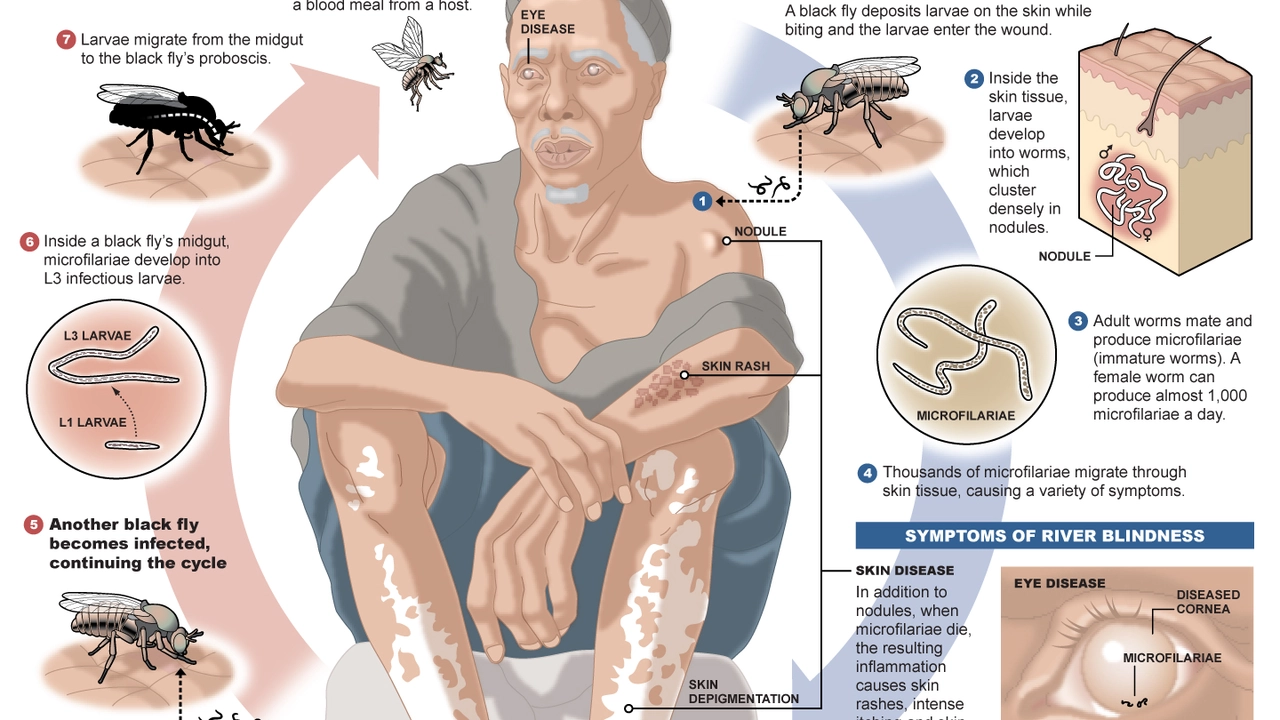River Blindness: What It Is and What You Can Do
River blindness (onchocerciasis) is a parasitic disease spread by blackfly bites near fast-flowing rivers. The parasite, Onchocerca volvulus, causes severe itching, skin changes, and in advanced cases, vision loss. If you’re traveling to or living in areas where the disease exists, knowing the signs and treatment options can make a big difference.
How you get it and what to watch for
Blackflies transmit larvae when they bite. The larvae grow into adult worms under the skin and release tiny offspring called microfilariae. Symptoms often start with intense itching and small bumps under the skin. Over months to years, those microfilariae can damage the eye and lead to blurred vision or blindness. If you notice persistent itching, new skin nodules, or changes in sight after travel, see a healthcare provider promptly.
Practical treatment and prevention steps
Ivermectin (brand names include Mectizan and Stromectol) is the main drug used to kill microfilariae and reduce transmission. It doesn’t reliably kill adult worms, so repeated doses—often given by community programs—are needed. There are alternatives and complementary approaches: doxycycline targets the symbiotic Wolbachia bacteria inside the worms and can weaken adult worms, while surgical removal of nodules helps in some cases.
Community mass drug administration (MDA) programs are the most effective public-health tool. When whole communities get regular ivermectin, transmission drops dramatically. If you’re in an at-risk area, find out if local MDA is available and join it—this protects you and your neighbors.
Prevention also means avoiding blackfly bites. Use insect repellent, wear long sleeves and pants, and avoid peak blackfly hours near rivers. Simple measures like screens and bed nets help less for daytime biters, so protection when outdoors is key.
If you need medication, don’t self-treat without medical guidance. Some patients look for alternatives to Stromectol; our site has a clear guide on "Top 9 Alternatives to Stromectol" that explains options, benefits, and risks. We also cover safe ways to order medicines online—check our pharmacy safety guides before buying drugs from unfamiliar sites.
Diagnosis is usually clinical plus lab tests like skin snips to find microfilariae. Treatment plans vary by severity, coexisting conditions, and pregnancy status—so a clinician’s exam matters. Eye symptoms need urgent attention from an eye specialist familiar with infectious causes.
If you’re worried you might have river blindness, start with a local health clinic or travel medicine specialist. Early detection prevents permanent vision loss, and joining community treatment efforts helps wipe out transmission over time. For practical reading, our pages on ivermectin alternatives and online pharmacy safety have step-by-step tips to help you get the right care safely.
